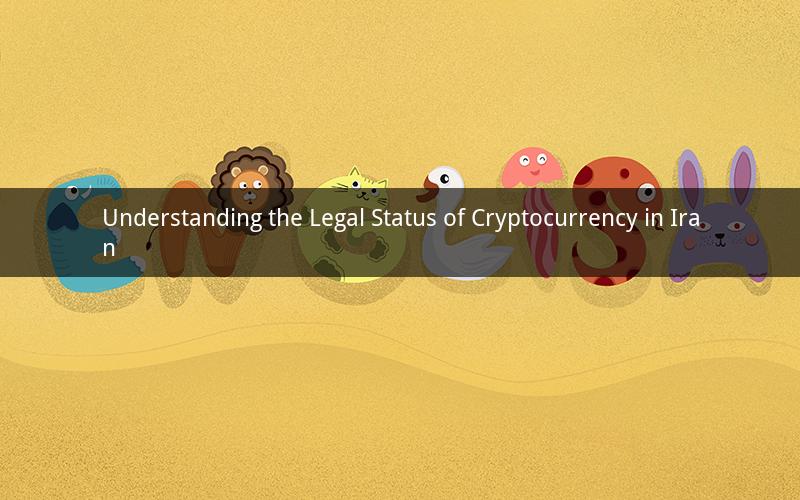
Introduction:
In recent years, the rise of cryptocurrencies has sparked global interest, with many countries grappling with the legal implications of this innovative technology. One such country is Iran, where the legality of cryptocurrencies has been a topic of heated debate. This article delves into the legal landscape surrounding cryptocurrencies in Iran, exploring the regulations, challenges, and implications for both individuals and businesses.
Legal Status of Cryptocurrency in Iran:
The legal status of cryptocurrency in Iran is complex and has evolved over time. Initially, cryptocurrencies were largely unregulated in the country. However, in 2019, the Central Bank of Iran (CBI) issued a ban on the use of cryptocurrencies for transactions, citing concerns over money laundering and financial stability.
The ban was met with mixed reactions, with some businesses and individuals continuing to use cryptocurrencies despite the risks. In response, the CBI has taken several measures to enforce the ban, including blocking access to cryptocurrency exchanges and imposing penalties on individuals and businesses involved in cryptocurrency transactions.
Despite the ban, cryptocurrencies have not disappeared entirely from the Iranian market. Some individuals and businesses continue to use cryptocurrencies for various purposes, including international trade and investment. This has raised questions about the effectiveness of the ban and the potential for cryptocurrencies to thrive in Iran.
Challenges Faced by Cryptocurrency Users in Iran:
The legal ban on cryptocurrencies in Iran has presented several challenges for users. Firstly, the lack of legal recognition makes it difficult for individuals and businesses to use cryptocurrencies for legitimate purposes. This has led to a rise in illegal activities, such as money laundering and tax evasion.
Secondly, the ban has made it difficult for Iranian citizens to access international markets and invest in global assets. This has had a negative impact on the country's economy, as individuals and businesses are unable to take advantage of the benefits offered by cryptocurrencies.
Furthermore, the ban has led to a thriving black market for cryptocurrencies in Iran. This has created a risky environment for users, as they are often exposed to fraudulent activities and lack the necessary legal protection.
Implications for the Iranian Economy:
The legal status of cryptocurrency in Iran has significant implications for the country's economy. Firstly, the ban has hindered the growth of the digital economy, as businesses are unable to take advantage of the benefits offered by cryptocurrencies.
Secondly, the ban has created a financial black market, which has contributed to inflation and economic instability. This has further exacerbated the economic challenges faced by the Iranian population.
On the other hand, some argue that cryptocurrencies could potentially contribute to the growth of the Iranian economy. By enabling access to international markets and investment opportunities, cryptocurrencies could help diversify the country's economy and reduce its dependence on oil exports.
Alternatives to Cryptocurrency in Iran:
Given the legal restrictions on cryptocurrencies, individuals and businesses in Iran are seeking alternative solutions to access international markets and invest in global assets. Some of the popular alternatives include:
1. Traditional Foreign Exchange: Many individuals and businesses in Iran rely on traditional foreign exchange services to access international markets. However, this option is often limited and comes with high transaction fees.
2. Digital Currency Exchanges: Some digital currency exchanges have emerged in Iran, offering a limited range of services. However, these exchanges are often unregulated and pose significant risks to users.
3. P2P Transactions: Peer-to-peer transactions have become a popular method for individuals and businesses in Iran to exchange cryptocurrencies. However, this method is also risky and lacks legal protection.
Questions and Answers:
1. Q: Can individuals and businesses legally use cryptocurrencies in Iran?
A: No, the use of cryptocurrencies for transactions is illegal in Iran, as per the Central Bank of Iran's ban.
2. Q: How has the ban on cryptocurrencies affected the Iranian economy?
A: The ban has hindered the growth of the digital economy, contributed to inflation, and created a thriving black market for cryptocurrencies.
3. Q: Are there any legal alternatives to cryptocurrencies in Iran?
A: Yes, individuals and businesses can use traditional foreign exchange services, digital currency exchanges, and peer-to-peer transactions as alternatives to cryptocurrencies.
4. Q: Can the legal ban on cryptocurrencies be lifted in Iran?
A: The possibility of lifting the ban is uncertain, as it depends on various factors, including the government's stance on cryptocurrencies and the country's economic needs.
5. Q: What are the risks associated with using cryptocurrencies in Iran?
A: The risks include legal penalties, exposure to fraudulent activities, and lack of legal protection for users.